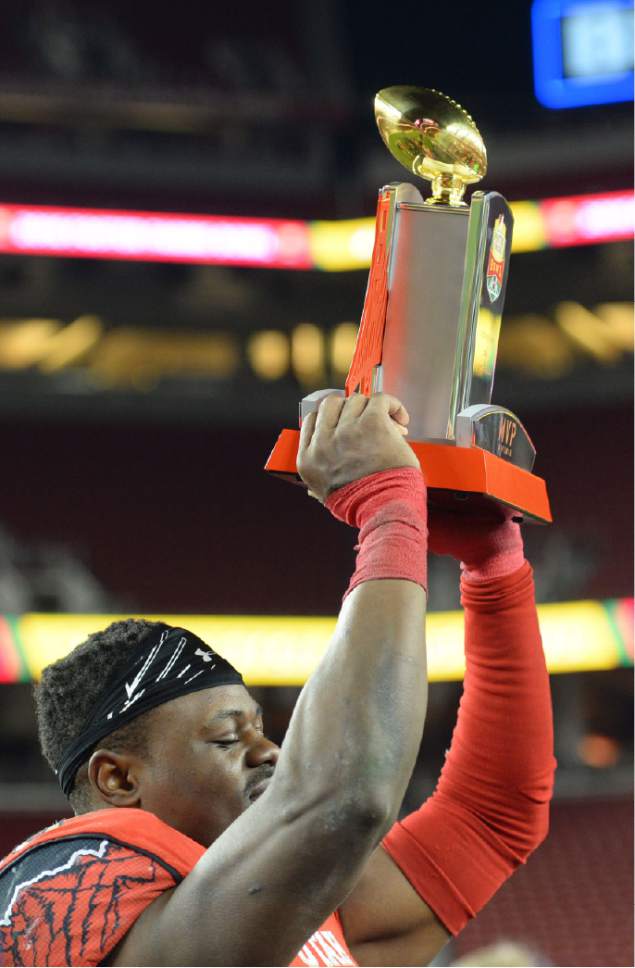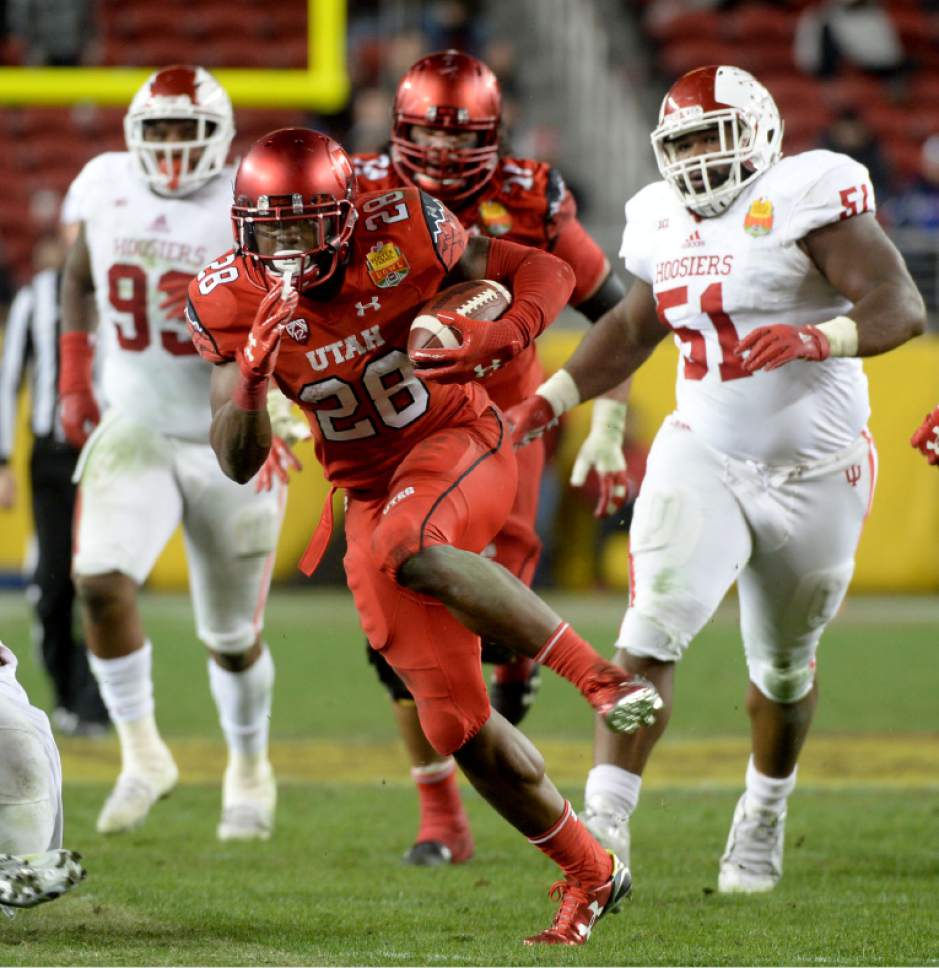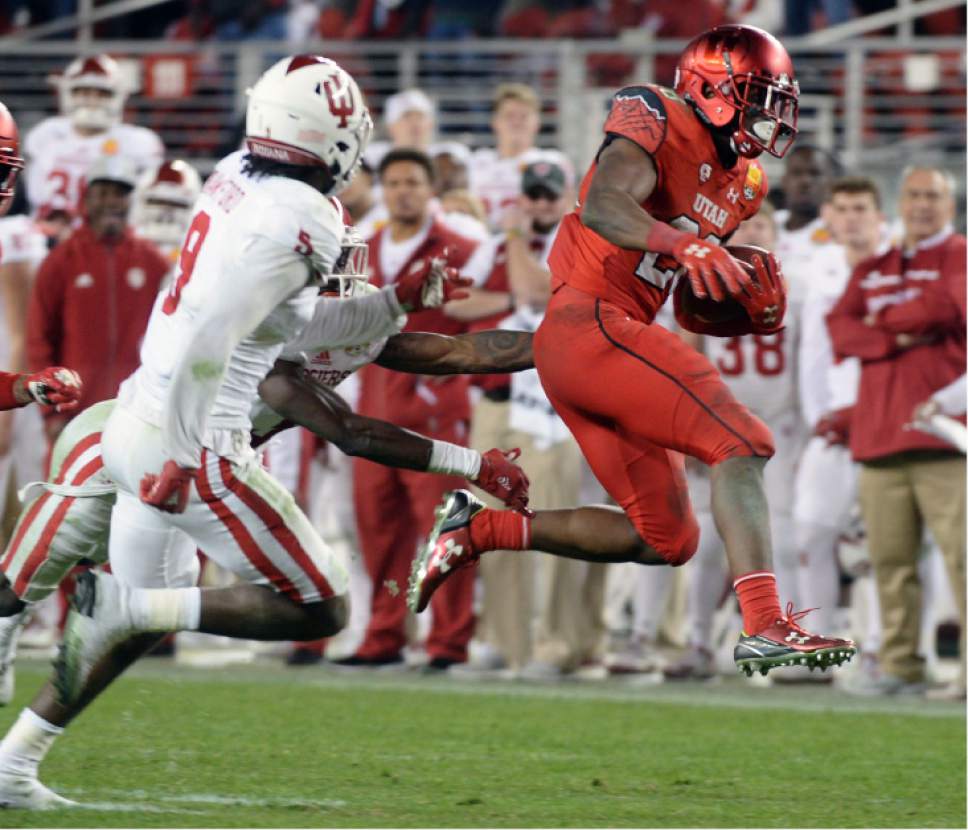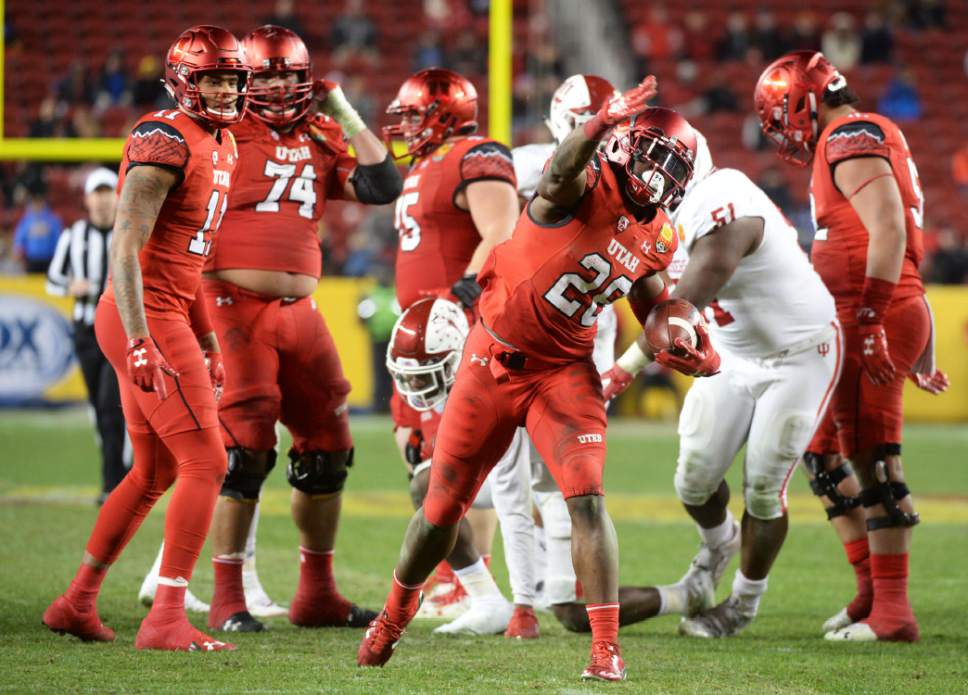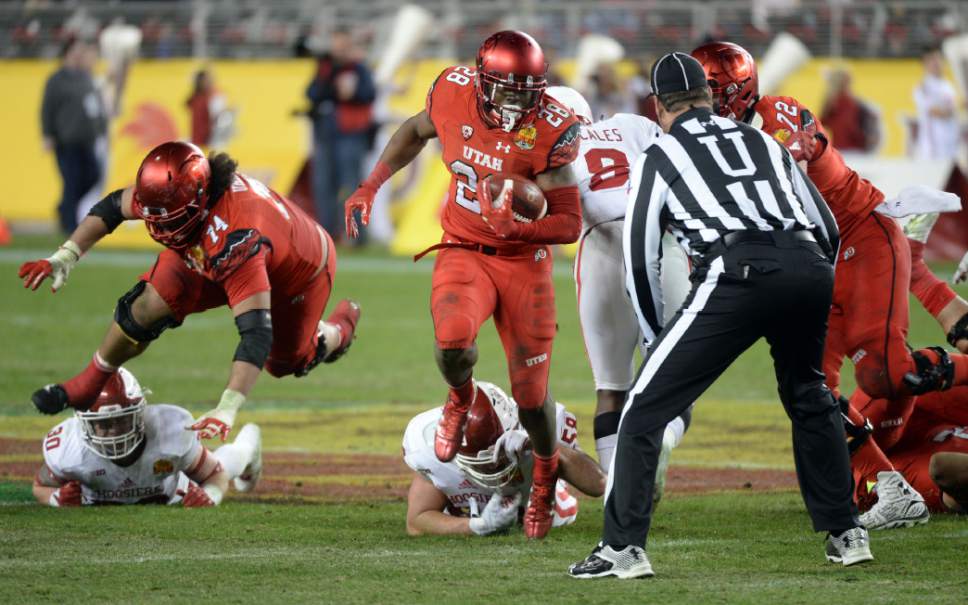This is an archived article that was published on sltrib.com in 2017, and information in the article may be outdated. It is provided only for personal research purposes and may not be reprinted.
In one sense, it was the defining question of Utah football's 2016 season: http://bit.ly/2cm694K";>Why did Joe Williams retire only to http://bit.ly/2es4oVt";>return weeks later?
The most definitive answer so far comes from USA Today,http://www.usatoday.com/story/sports/nfl/draft/2017/02/16/joe-williams-utah-utes-sister-kylee-nfl-draft/97995946/";> which published a story on Williams as he's looking for a job in the NFL. GMs are understandably interested as well, and he's started to unspool a tale of family tragedy and mental illness that gives a peek into why he left football.
The trouble started, the story goes, when Williams' sister died when he was 13 in a shocking medical episode. The trauma left him going to therapy and taking medication for years. That led to an apparent prescription drug dependency while he was at Utah, which helped lead to a mental breakdown during the season:
The emotional strain had left Williams feeling he lacked physical fortitude. He had shin splints and overall body pain. He took prescription Tylenol and sometimes Vicodin or Percocet to get through the day, NyQuil to sleep, Adderall to wake up. After two poor games to start last season, getting yelled at by Utah coach Kyle Whittingham and benched in a win over BYU, Williams informed the team "I can't do it anymore," Whittingham recalled.
"What brought me to the decision was just how bad my mental health was going," Williams said. "Before leaving, there would times of the day where I would always be that 13-year-old kid grieving about his sister, and just holding her as she died in my arms. I took a lot of painkillers to mask the pain that I had from it, the stress that it was causing. And football just wasn't a big enough outlet for that emotion."
Williams added that he sought therapy during his four-week hiatus in addition to focusing on school. By the time Utah asked him back, everyone could see how different his mindset and physical state was. He told USA Today he's done with prescription pills, and ready to "honor my family" by playing in the NFL.
http://bit.ly/2ighIOt";>After the Foster Farms Bowl, Williams was asked (understandably) several times about his retirement, and promised that sometime soon he would explain what he went through. Now, he has.
More links:
• Is Utah an NFL factory? http://www.foxsports.com/college-football/gallery/nfl-combine-full-list-of-invited-players-most-by-school-021517";>The Utes tied USC atop the Pac-12 for the most prospects invited to the NFL Combine: Brian Allen, Isaac Asiata, Garett Bolles, J.J. Dielman, Pita Taumoepenu, Sam Tevi, Joe Williams and Marcus Williams. http://www.si.com/nfl/photo/2017/02/16/nfl-draft-combine-invite-list-snubs-prospects?xid=socialflow_twitter_si";>Notable snub: Hunter Dimick.
• I linked to it yesterday in the Game Guide, but the https://www.nytimes.com/2017/02/15/sports/ncaabasketball/dillon-brooks-flop-oregon-ducks.html";>New York Times profiled Dillon Brooks, who has been haunted by the flop against Utah that went viral.
• Pitchers and catchers report in the MLB, but baseball is getting started for the Utes. http://web.usabaseball.com/article.jsp?ymd=20170119&content_id=216039858&vkey=news_gsa";>Junior pitcher Jayson Rose, the Utes' ace, is on the preseason watchlist for the Golden Spikes Award given annually to the best player in baseball. Look for a season preview soon.
• Not Pac-12 news, but http://www.coloradoan.com/story/sports/csu/mens-basketball/2017/02/15/colorado-state-basketball-larry-eustachy-investigation/97949522/";>a very striking investigation by The Coloradoan on Colorado State coach Larry Eustachy (formerly of Utah State prior to Stew Morrill) about a culture of fear and intimidation established in Fort Collins. Eustachy was the subject of an internal investigation in 2014 that recommended he be fired. He wasn't.
APPROPOS OF NOTHING • This is from earlier in the week, but I couldn't let it go. Tim Layden, a veteran Olympic sports writer for Sports Illustrated,http://www.si.com/nba/2017/02/13/gregg-popovich-coach-mentor-curt-tong-williams-pomona-pitzer?xid=socialflow_twitter_si";> reflected on the passing of an old mentor, Curt Tong, who once also oversaw Spurs coach Greg Popovich when he was getting his start in coaching.
Simply put, this is a beautiful reflection on coaches, athletes, masculinity and lessons that take a lifetime to learn. The story is driven by an anecdote about how the author was cut from his Division III basketball team by Tong, and how painful that was for him to face. But embedded are some fantastic insights about mentorship and coaching:
But details never tell the full story of a coach's life, because a coach—a teacher, by any measure—is more than the sum of his life's accomplishments. A coach is his own life, and every life he has ever touched, his words and his lessons melting down through generations, outliving him by decades. Coaches expire every day, but they never die. They live forever. When I talked to Coach Tong on that windowsill in 1976, I knew nothing of the man and nothing of his life—or life, period. I knew only that he had taken away my spot and my identity and I was angry at him for that. (Anyone who has ever been cut from a team reviles the coach who dropped the axe, whether for a moment or for a lifetime. The coach knows this best of all). Over the years he would teach me much more. And he would teach many others, too.
As always, keep reading.
kgoon@sltrib.com
Twitter: @kylegoon


